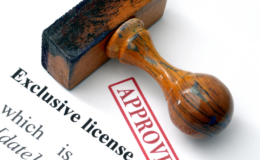Securing a commercial loan is a critical step for business growth and sustainability, but the application process can often seem overwhelming. To increase your chances of success, it’s essential to prepare a thorough and compelling application. Here are practical tips and advice on crafting a strong commercial loan application, including the essential documents and financial statements you will need.
Understand the Lender’s Requirements
Before diving into the application, it’s crucial to understand what your lender is looking for. Different lenders might have varying requirements based on the type of loan, the amount, and the purpose. Research and clarify these requirements ahead of time to tailor your application accordingly.
Develop a Strong Business Plan
Your business plan is the foundation of your loan application. It should clearly articulate your business idea, market analysis, management team, operational strategy, and financial projections. A well-prepared business plan demonstrates to lenders that you have a viable business strategy and the capability to repay the loan.
Key components of a business plan include:
- Executive Summary: An overview of your business and why you need a loan.
- Company Description: What you do, who your customers are, and your business’s competitive advantages.
- Market Analysis: Insights into your industry, market trends, target market, and competitive landscape.
- Organization and Management: Your business structure and information about the management team.
- Service or Product Line: The products or services you offer.
- Marketing and Sales Strategy: How you plan to attract and retain customers.
- Financial Projections: Detailed forecasts of your income, cash flow, and balance sheet.
Prepare Financial Statements
Accurate and up-to-date financial statements are critical to any commercial loan application. These documents show your business’s financial health and help lenders assess your ability to repay the loan.
Essential financial documents include:
- Balance Sheet: Shows your business’s assets, liabilities, and equity.
- Income Statement (Profit and Loss Account): Demonstrates your revenue, expenses, and profits over a specific period.
- Cash Flow Statement: Provides a summary of cash inflow and outflow from operations, financing, and investing activities.
- Bank Statements: Typically, lenders will want to see the last six months to one year of your business’s bank statements.
Check Your Credit
Both your personal and business credit scores can impact your loan application. Ensure you know your credit scores and that your credit reports are free of errors. If your credit score is low, consider steps to improve it before applying for a loan.
Gather Additional Documents
Beyond financial statements and business plans, be prepared to provide additional documentation, such as:
- Tax Returns: Usually, the last two to three years for both business and personal tax returns.
- Legal Documents: Business licenses, articles of incorporation, leases, franchise agreements, and any other legal documents that verify your business operations.
- Collateral: Documentation that details any assets used to secure the loan.
Be Prepared for Questions
Be ready to answer questions about your business and your financials. This could range from clarifications about your financial statements to discussing how you plan to use the loan.
Conclusion
A successful commercial loan application requires careful preparation and attention to detail. By understanding lender requirements, crafting a detailed business plan, preparing essential financial documents, checking your credit, and being prepared to discuss your business in-depth, you can significantly enhance your chances of securing a commercial loan. This preparation not only aids in obtaining the loan but also positions your business for greater success.






